Price 800000 आईएनआर/ Unit
MOQ : 1 Unit
Specification
- विशेषताएँ
- Specialized in Injection Molding Screw & Barrel
- उपयोग/अनुप्रयोग
- Injection Molding
- शेप
- Cylindrical
- लुब्रिकेटिंग सिस्टम
- Oil/Grease based lubrication possible
- ड्राइव टाइप
- Direct/Indirect drive (machine specific)
- क्षमता
- किग्रा
- व्यास
- मिलीमीटर (mm)
- मोटर पावर
- वाट (W)
- शोर का स्तर
- डीबी
- सतह की फ़िनिश
- Smooth, Polished
- साइज
- Custom or standard sizes available
- प्रॉडक्ट टाइप
- मटेरियल
- Nitrided/Hardened Steel
- टेक्नोलॉजी
- पावर सोर्स
- पावर
- वाट (w)
- वोल्टेज
- वोल्ट (v)
- प्रेशर
- बार
- सतह का उपचार
- आयाम (एल* डब्ल्यू* एच)
- मिलीमीटर (mm)
- वज़न
- किलोग्राम (kg)
- रंग
- Silver
Trade Information
- Minimum Order Quantity
- 1 Unit
- भुगतान की शर्तें
- , ,
About
A screw barrel is a fundamental part of plastic and rubber processing machinery, used primarily in extruders and injection molding machines. It consists of a screw (rotating shaft with helical flights) and a barrel (cylindrical housing), together responsible for melting, mixing, and conveying raw materials. As the screw rotates within the heated barrel, the polymer material is gradually melted by a combination of heat and shear, then pushed forward for molding or extrusion.Advanced Engineering for Polymer Extrusion
Our screw barrels feature top-tier materials and innovative manufacturing techniques to handle demanding plastic processing applications. With customizable thread types and dimensions, each barrel is tailored for optimal compatibility with various injection molding machines, ensuring seamless integration and superior productivity. Their robust construction and precision machining deliver the durability and performance needed in fast-paced environments.
Customization and Precision Machining
Each screw barrel is manufactured using precision machining technology, allowing for customized dimensions, power, voltage, and pressure configurations. OEM services are available for unique requirements, meaning you receive a product engineered for your specific injection molding setup. Surface treatments like nitriding and hard chrome plating ensure a smooth, corrosion-resistant finish, maximizing operational life.
Corrosion Resistance and Long Service Life
Utilizing nitrided and hardened steel combined with advanced surface treatments, these screw barrels provide robust corrosion resistance and an extended service life. Regular maintenance further enhances durability, making them a cost-effective solution for manufacturers, distributors, and service providers looking for reliable and efficient plastic extrusion components.
FAQs of SCREW BARREL:
Q: How does the screw barrels thread type affect its performance in plastic processing?
A: The choice of single, double, or multi-flight thread type directly impacts material flow and mixing efficiency during plastic processing. Multi-flight designs enhance melt homogenization and throughput, making them suitable for complex extrusion tasks, while single-flight barrels offer simplicity and consistent flow for standard applications.Q: What materials and surface treatments are used to achieve high hardness and corrosion resistance?
A: Screw barrels are made from nitrided and hardened steel, providing a core hardness of 3540 HRC and a surface hardness of 5864 HRC. Surface treatments such as nitriding, hard chrome plating, and polishing are applied to boost corrosion resistance, durability, and smooth operation within injection molding environments.Q: When should a screw barrel be replaced, and are custom options available for specific machines?
A: Replacement is recommended when wear, decreased performance, or surface degradation occurs despite regular maintenance. Custom screw barrels are available, ensuring compatibility with both standard and specialized injection molding machines. OEM manufacturing and dimension customization are supported to fit unique operational needs.Q: Where are these screw barrels primarily used, and who can benefit from their features?
A: These screw barrels are mainly used in plastic processing and polymer extrusion industries, particularly within injection molding technology. Manufacturers, exporters, suppliers, and service providers in India and globally can benefit from their high performance, reliability, and longevity.Q: How does the precision machining process enhance the screw barrels effectiveness?
A: Precision machining ensures that each screw barrel meets exact dimensional tolerances and smooth surface finishes. This accuracy minimizes friction, supports low noise operation, and improves overall efficiency, resulting in consistent, high-quality output during injection molding processes.Q: What are the benefits of the lubricating system and low noise operation in these barrels?
A: The oil or grease-based lubricating system minimizes wear and supports long-term performance, while the low noise operation enhances workplace conditions, contributing to safer and more comfortable environments in high-output manufacturing settings.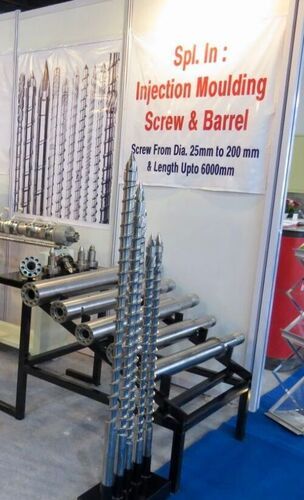
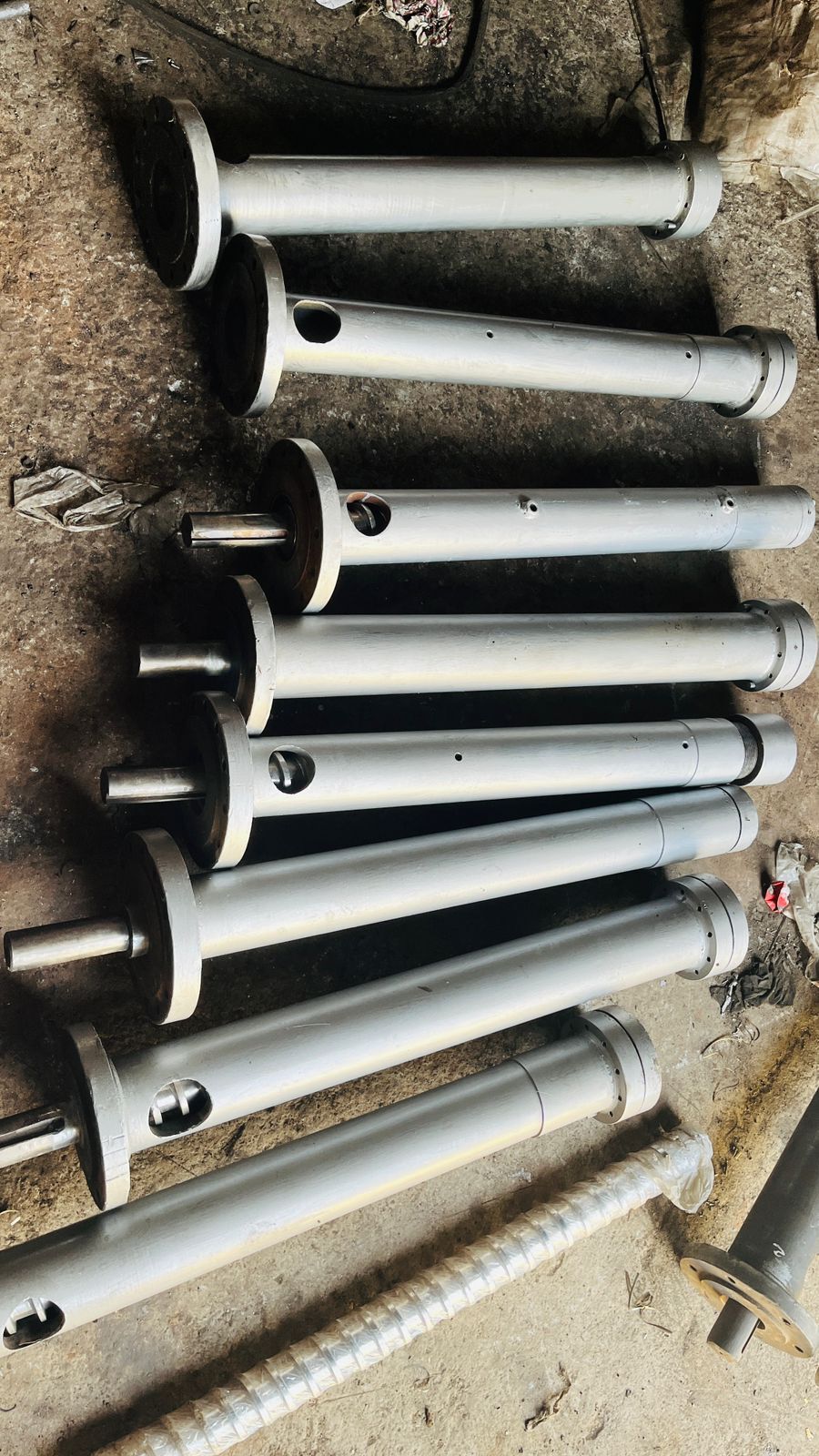
Tell us about your requirement

Price: Â
Quantity
Select Unit
- 50
- 100
- 200
- 250
- 500
- 1000+
Additional detail
मोबाइल number
Email
अधिक Products in Machinery & Parts Category
स्क्रू और बैरल
मूल्य की इकाई : टुकड़ा/टुकड़े
मूल्य या मूल्य सीमा : आईएनआर
न्यूनतम आदेश मात्रा : 10000
प्रॉडक्ट टाइप : Machine Parts
मटेरियल : EN41B
माप की इकाई : Plant/Plants

 जांच भेजें
जांच भेजें
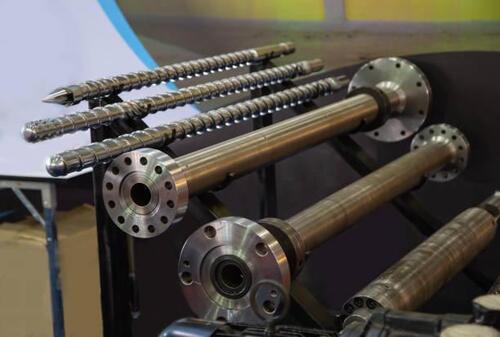
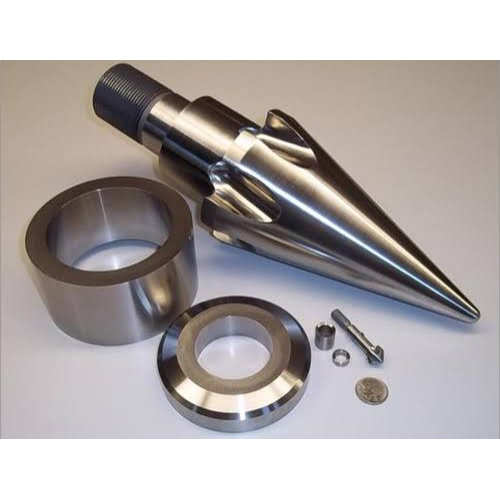
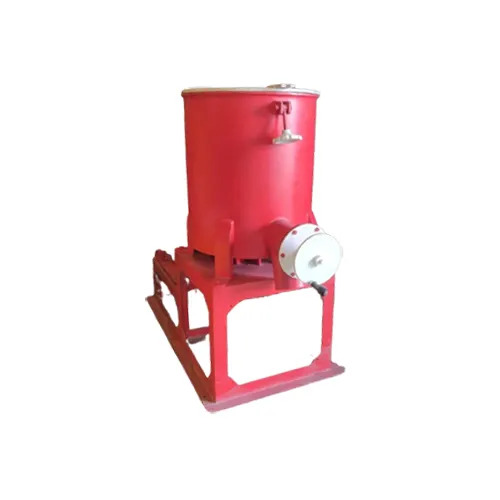


 जांच भेजें
जांच भेजें एसएमएस भेजें
एसएमएस भेजें